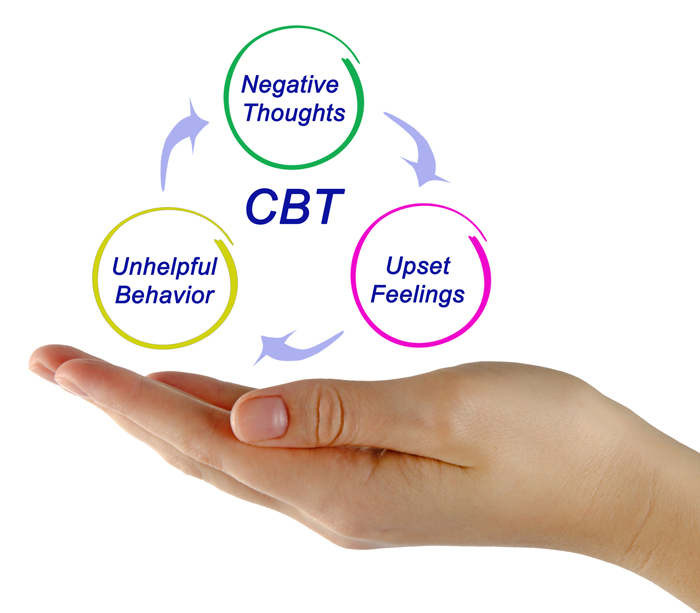
August 4, 2024
Partnership And Partnership Formation Procedures In Psychotherapy: A Dual-perspective Qualitative Research
Partnership And Alliance Formation Processes In Psychiatric Therapy: A Dual-perspective Qualitative Study Building a solid therapist-client connection begins with creating a safe and inviting environment. This entails showing empathy, respect, and comprehending towards the client's experiences. Therapists must also be non-judgmental and approving, allowing clients to express their thoughts and feelings without fear of criticism or being rejected.Exactly How To Plan Your Therapy Session: 6 Examples
10 Effective Ways to Connect With Your Customers - Business News Daily
10 Effective Ways to Connect With Your Customers.
Posted: Thu, 09 Nov 2017 05:38:56 GMT [source]


- ( 1) The very first author re-read, listened to and functioned to come to be knowledgeable about the data product.
- The Problem-Centered Interview (PCI) by Witzel [2000] was picked as a qualitative survey tool.
- After years of psychiatric therapy research, these inquiries stay unanswered in the literature.
- By doing this of being with each other exceeded the technological elements of therapy, but at the same time included actual healing work, as it made the client all set to involve.
- Instead, the current research study indicate what happens when the actual connection fails to establish in the first place (dyads 4, 9 and 11, specifically).
Instances Of A Supportive Healing Partnership
Transference takes place in therapy when the client tasks feelings they have (or are experiencing for one more individual in their life) onto the therapist. In this example, the client is predicting the anger they have towards their parents onto the specialist. Empathetic reactions are vital to developing a strong therapeutic partnership in onset of therapy. The Wonder Inquiry Worksheet is a wonderful method for the client and therapist to determine what objectives they will certainly work toward together. An additional advantage is the mix of two sessions, allowing us to track the advancement of the partnership across time. Further staminas include the variant in therapist proficiency, therapy techniques, various clinics, and age and gender of individuals. The study literature on rupture and repair processes is helpful to comprehend how particular relational characteristics become devastating. According to Safran and Muran (2000 ), tears in the alliance can either be significant occurrences that unavoidably modify the healing environment, or subtle-- in some cases even unnoticeable-- tensions in the interaction. At the core of any type of therapeutic relationship exists compassion and active listening. Showing compassion enables you to genuinely recognize and confirm your customers' experiences and feelings. Energetic listening entails fully appealing with your clients, focusing on their words, tone, and body language. Exercise the art of listening without interruption, judgment, or preconceived notions. Motivate clients to express themselves freely while mirroring back on their thoughts and sensations to show that you understand their perspective. By growing empathy and energetic listening, you lay the foundation for a risk-free and encouraging healing environment. This qualitative research used a phenomenology research study design and contained 12 women and 9 male, twenty-one volunteer customers. Fifteen participants were provided face-to-face, whereas 6 participants, on the internet therapy. Customers obtained face-to-face and online counseling from seven volunteer elderly trainees in the undergraduate program of Counseling and Guidance. The results of the research study recommend that the troubles and contentment are quite similar in face-to-face and on the internet customers. Respectively, career development issues, scholastic troubles, and connection concerns with a partner and family follow personal problems. We chose to research the 3rd and fifth session to offer customers time to think about whether they wanted to take part in the research study and allow the first introductory/socialization stage of therapy pass before information collection. Furthermore, we selected to examine 2 sessions (third and 5th) to be able to follow their relational advancement throughout some time. Additionally, researching both sessions enabled us to explore whether ruptures or various other forms of relational obstacles in session three were overcome in session 5, and explore the procedures causing either relational adjustment or torpidity. Research studies are lacking that would certainly reveal that the separated restorative alliance aspect enhances quality of life-- both temporarily (wellness) and in an extra lasting perspective (more healthy and balanced growth, emotional health and wellbeing, and thriving). Although the psychotherapeutic alliance is the most often approximated determinant of success in psychotherapeutic therapy, little is found out about the explanatory worth of its components (38, 39). When reviewing the results, it must be taken into account that the distortion tendencies that often tend to come with spoken statements and feasible individual overestimation and falsification of what was stated by the interpreter might not be excluded. This bond enables clients to feel secure and understood, promoting an atmosphere where they can honestly share their thoughts and feelings. It likewise enhances the customer's motivation and involvement in treatment, leading to more reliable outcomes. Study shows that the capacity to create great relationships with clients is not just a function of specialist training or experience level. Numerous starting therapists are as experienced as their even more skilled counterparts at developing great healing partnerships. Nonetheless, research studies show that skilled specialists are better at creating relationships with those people who have battled in past partnerships. Furthermore, experienced specialists are better than beginners at determining and dealing with problems in the healing relationship. However, the customers in this research hardly ever thought about minor stress or tiny misattunements to be relational tears. This remains in line with the thinking about Gelso and Kline (2019 ), who argue that we tend to make use of the term 'rupture' too freely, and allows us to distinguish between tears in the genuine partnership and the partnership. While tears in the alliance are inescapable, tears in the real connection are much less constant however extra damaging. These tears require specific and immediate adjustment (Gelso and Kline, 2019). Compared with specialists, customers placed greater focus on symbolized aspects of the partnership (feeling kicked back, safe and involved).Social Links